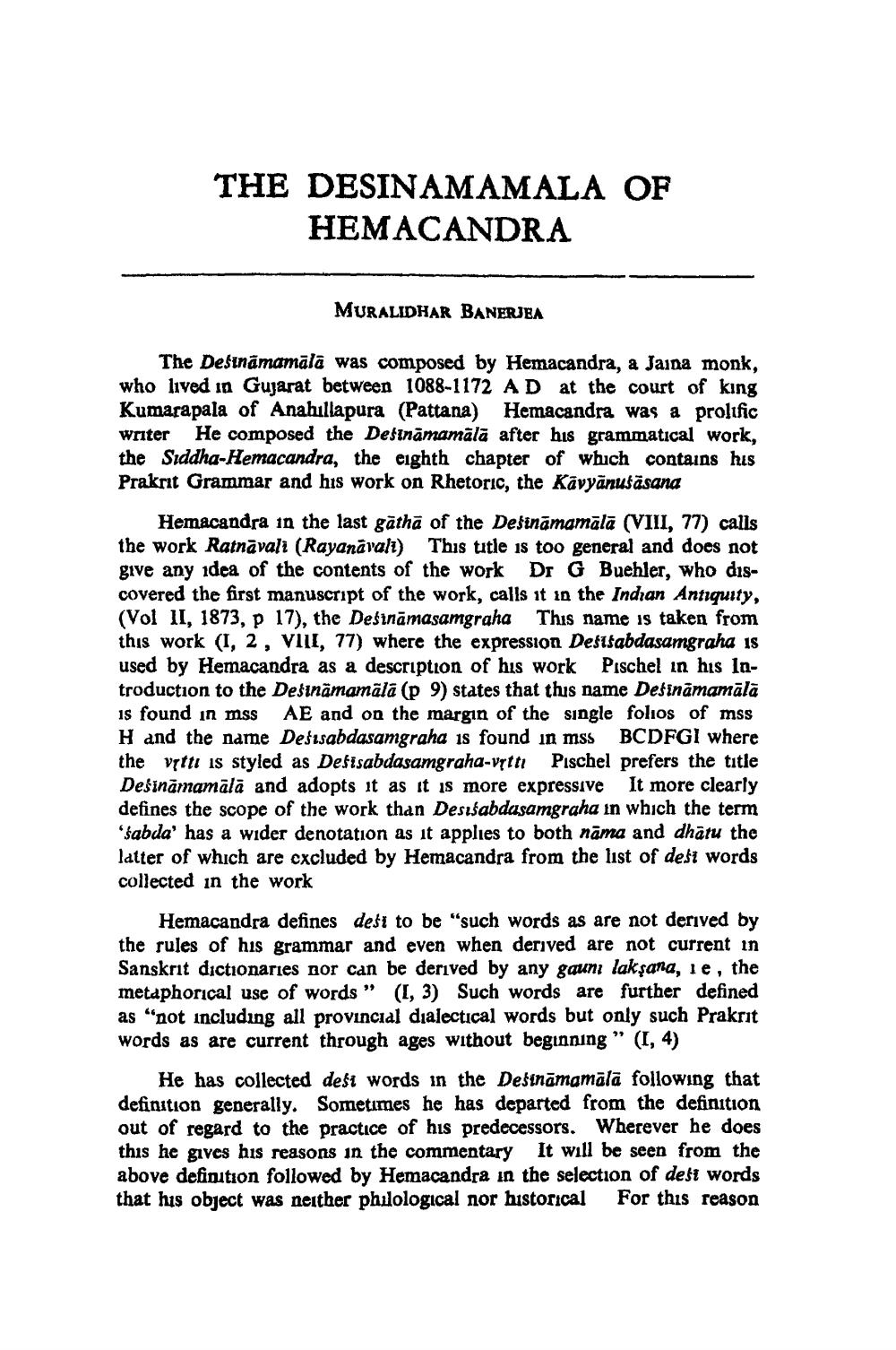________________
THE DESINAMAMALA OF
HEMACANDRA
MURALIDHAR BANERJEA
The Defināmamāla was composed by Hemacandra, a Jaina monk, who lived in Gujarat between 1088-1172 AD at the court of king Kumarapala of Anahıllapura (Pattana) Hemacandra was a prolific writer He composed the Defināmamālā after his grammatical work, the Siddha-Hemacandra, the eighth chapter of which contains his Prakrit Grammar and his work on Rhetoric, the Kavyānusäsana
Hemacandra in the last găthā of the Defināmamālā (VIII, 77) calls the work Ratnāvall (Rayanāralı) This title is too general and does not give any idea of the contents of the work Dr G Buehler, who discovered the first manuscript of the work, calls it in the Indian Antiquity, (Vol II, 1873, p 17), the Dešināmasamgraha This name is taken from this work (I, 2, VIII, 77) where the expression Desisabdasamgraha is used by Hemacandra as a description of his work Prschel in his Introduction to the Desinämamālā (p 9) states that this name Defināmamālā is found in mss AE and on the margin of the single folios of mss H and the name Desisabdasamgraha is found in mss BCDFGI where the vitti is styled as Desisabdasamgraha-vrtti Puschel prefers the title Dešināmamālā and adopts it as it is more expressive it more clearly defines the scope of the work than Desiśabdasamgraha in which the term 'sabda' has a wider denotation as it applies to both nāma and dhatu the latter of which are excluded by Hemacandra from the list of dest words collected in the work
Hemacandra defines deši to be "such words as are not derived by the rules of his grammar and even when derived are not current in Sanskrit dictionaries nor can be derived by any gauni laksana, ie, the metaphorical use of words " (1, 3) Such words are further defined as "not including all provincial dialectical words but only such Prakrit words as are current through ages without beginning ” (I, 4)
He has collected dest words in the Defināmamālā following that definition generally. Sometimes he has departed from the definition out of regard to the practice of his predecessors. Wherever he does this he gives his reasons in the commentary It will be seen from the above definition followed by Hemacandra in the selection of dest words that his object was neither philological nor historical For this reason




